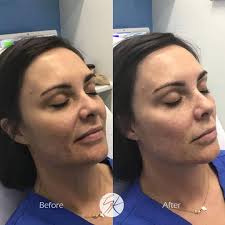
If you suffer from nasal septum perforation, there are several ways to treat the condition. This article will cover surgical options as well as non-surgical alternatives and side effects. We'll also talk about whether to use antihistamines, or go for surgery. A home treatment is a good option if you'd like to avoid invasive procedures. However, if you're unsure of which method to use, contact a doctor.
Non-surgical treatments
You may wonder what the best treatment for a hole in your nose septum? While some patients experience no symptoms, some have a range of unpleasant symptoms, including bleeding and scabbing. Non-surgical treatment may be your best option if you have any of these symptoms. Below are some of the common treatment options for nasal septum piercing.

Options for Surgical Treatment
This problem can be treated with surgical options, but not all options. These methods aren't always the best, as they can lead to infection or bleeding. You may need another surgery if the perforation does not close completely. Discuss your options with your doctor if home treatment is an option. The pros and cons of each type of surgical method are outlined below.
Side effects of surgery
The nasal septum perforation can cause a host of symptoms. This is the most common. However, large holes can lead to blood loss and crusting. You may also get chronic infections. Perforated septums may cause bleeding and crusting. This can make it difficult to breathe normally.
Antihistamines
Home treatment is not possible with the use of antihistamines to treat nasal septum perforation. Side effects of antihistamines can cause inflammation and irritation. Antihistamines can cause dryness and irritation, as well as a sore throat and a whistling sound.

Steroid sprays
Two types of treatment can be used to treat nasal septum fractures: surgical treatment and topical treatment. Both are designed to treat the symptoms of the perforation while the former is a long-term fix. Before starting any treatment, discuss your options and consult your doctor. Nasal ointments can be useful in keeping the septum moist. However, they may contain ingredients that are harmful for the body.